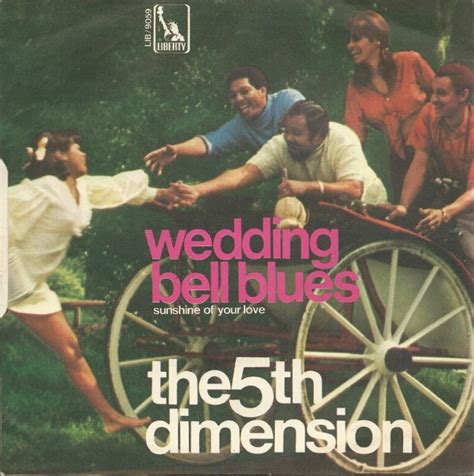
Women buck online trends by sharing heartwarming stories of men’s kindness and support, challenging negative stereotypes often perpetuated in social media discourse. These anecdotes highlight positive male behavior and demonstrate acts of empathy, respect, and genuine care, offering a counter-narrative to prevalent generalizations.
The internet, often a breeding ground for divisive rhetoric, witnessed a refreshing wave of positivity as women took to social media platforms to share instances of male kindness. This trend, sparked by various online discussions, encouraged women to recount experiences where men demonstrated empathy, support, and respect, effectively challenging the pervasive “men are trash” narrative that has gained traction in certain online spaces. These stories, ranging from small acts of consideration to significant displays of support, serve as a reminder of the positive interactions that often go unnoticed amidst the noise of negativity.
The movement began organically as a reaction to the widespread generalization of men as being inherently flawed or unworthy. Recognizing the imbalance in the online discourse, women sought to amplify positive experiences, thereby offering a more nuanced and balanced perspective. These shared stories not only highlighted individual acts of kindness but also underscored the importance of recognizing and celebrating positive male behavior.
One notable story involved a woman recounting how her male colleague consistently supported her professional growth, offering mentorship and advocating for her contributions in meetings. “He always made sure my voice was heard and that my ideas were given proper consideration,” she shared, emphasizing the impact of his support in boosting her confidence and career trajectory.
Another woman described a situation where a stranger on public transportation noticed her struggling with heavy bags and offered assistance without hesitation. “It was such a simple gesture, but it made a huge difference in my day,” she explained, highlighting the significance of small acts of kindness in making a positive impact.
These anecdotes, while diverse in their specific details, share a common thread: they showcase men acting with empathy, respect, and genuine concern for the well-being of others. They challenge the notion that all men are inherently flawed or incapable of kindness, offering a counter-narrative that emphasizes the importance of individual character and behavior.
“It’s important to remember that generalizations are dangerous and rarely reflect the full reality,” commented a social media user who actively participated in the trend. “By sharing these stories, we’re not trying to excuse negative behavior, but rather to highlight the positive examples that often get overshadowed.”
The trend also sparked broader discussions about the importance of promoting positive masculinity and challenging traditional gender stereotypes. Many participants emphasized the need to recognize and celebrate men who demonstrate emotional intelligence, empathy, and respect for women.
“We need to create a culture where men feel empowered to express their emotions and act with kindness without fear of judgment,” argued one commentator. “By highlighting these positive examples, we can help to break down harmful stereotypes and create a more equitable and compassionate society.”
The impact of this online movement extends beyond individual stories. It serves as a reminder of the power of positive storytelling in shaping perceptions and challenging negative narratives. By amplifying stories of male kindness, women are actively contributing to a more balanced and nuanced understanding of gender dynamics.
Moreover, the trend encourages men to reflect on their own behavior and consider how they can contribute to a more positive and supportive environment for women. It serves as a call to action for men to actively challenge harmful stereotypes and demonstrate empathy, respect, and kindness in their interactions with others.
The positive response to this online movement demonstrates a growing desire for more nuanced and balanced conversations about gender. It highlights the importance of recognizing and celebrating positive behavior while simultaneously addressing issues of inequality and injustice. By amplifying stories of kindness and challenging negative stereotypes, women are paving the way for a more equitable and compassionate future.
The shared stories also offer valuable insights into the types of behaviors that women find supportive and empowering. These include active listening, offering assistance without being asked, advocating for women’s contributions, and challenging sexist remarks or behavior. By understanding these preferences, men can become more effective allies and contribute to a more positive and inclusive environment for women.
The trend also underscores the importance of recognizing that individuals are not defined by their gender. While it is crucial to address systemic issues of gender inequality, it is equally important to acknowledge the diversity of experiences and behaviors within each gender. By focusing on individual actions and character, we can move beyond harmful generalizations and foster a more nuanced understanding of human behavior.
In conclusion, the online movement of women sharing stories of male kindness represents a significant step towards a more balanced and nuanced understanding of gender dynamics. By amplifying positive examples and challenging negative stereotypes, women are actively contributing to a more equitable and compassionate society. This trend serves as a reminder of the power of positive storytelling in shaping perceptions and fostering a more inclusive and supportive environment for all.
Expanded Context and Analysis:
The “Men Aren’t All Trash” trend emerges within a complex social landscape marked by increasing awareness of gender inequality, discussions around toxic masculinity, and the pervasive influence of social media. Understanding the context surrounding this trend is crucial for appreciating its significance and potential impact.
The Rise of Gender Awareness:
In recent years, there has been a significant increase in awareness of gender inequality and related issues. Movements like #MeToo have brought widespread attention to the prevalence of sexual harassment and assault, while discussions around the gender pay gap and the underrepresentation of women in leadership positions have highlighted systemic inequalities that persist across various sectors.
This heightened awareness has led to increased scrutiny of male behavior and a growing demand for accountability. While this scrutiny is essential for addressing issues of injustice, it has also contributed to a climate of heightened sensitivity and, in some cases, the perpetuation of negative stereotypes.
Toxic Masculinity and its Discontents:
The concept of “toxic masculinity” has gained prominence in recent years as a way to describe harmful societal expectations placed on men. These expectations often include suppressing emotions, prioritizing dominance and aggression, and objectifying women.
While the concept of toxic masculinity has been valuable in highlighting the negative consequences of these expectations, it has also been criticized for potentially generalizing and demonizing all men. Some argue that the term unfairly paints all men with the same brush and fails to acknowledge the diversity of experiences and behaviors within the male population.
The Influence of Social Media:
Social media plays a significant role in shaping perceptions and amplifying narratives related to gender. While social media can be a powerful tool for raising awareness and promoting positive change, it can also contribute to the spread of misinformation and the perpetuation of negative stereotypes.
The echo chamber effect, where individuals are primarily exposed to information that confirms their existing beliefs, can further exacerbate these issues. This can lead to the reinforcement of negative stereotypes and the polarization of opinions.
The “Men Are Trash” Narrative:
Within this context, the “men are trash” narrative has gained traction in certain online spaces. This narrative, often expressed through memes, jokes, and personal anecdotes, reflects a sense of frustration and disappointment with male behavior.
While some argue that the “men are trash” narrative is simply a form of venting and a way to express solidarity among women, others criticize it for being overly broad and unfair to men who are actively working to challenge harmful stereotypes and promote gender equality.
The “Men Aren’t All Trash” Trend as a Counter-Narrative:
The “Men Aren’t All Trash” trend emerges as a direct response to the negativity and generalization inherent in the “men are trash” narrative. It seeks to offer a counter-narrative by highlighting positive examples of male behavior and demonstrating that not all men fit the stereotype of being insensitive, disrespectful, or harmful.
This trend is not intended to excuse or minimize instances of negative behavior. Rather, it aims to provide a more balanced and nuanced perspective by acknowledging the diversity of experiences and behaviors within the male population.
The Importance of Nuance and Balance:
The success of the “Men Aren’t All Trash” trend underscores the importance of nuance and balance in discussions about gender. While it is crucial to address systemic issues of inequality and hold individuals accountable for their actions, it is equally important to recognize and celebrate positive behavior and avoid making sweeping generalizations that can be harmful and counterproductive.
By fostering a more nuanced and balanced dialogue, we can create a more inclusive and equitable society where individuals are judged on their character and actions, rather than on their gender.
The Potential Impact of the Trend:
The “Men Aren’t All Trash” trend has the potential to have a positive impact on both men and women. For women, it can provide a sense of hope and validation, reminding them that positive interactions with men are possible. For men, it can offer encouragement and inspiration, motivating them to continue acting with empathy, respect, and kindness.
Moreover, the trend can contribute to a broader cultural shift towards more positive and equitable gender dynamics. By highlighting positive examples of male behavior, it can help to break down harmful stereotypes and create a more supportive and inclusive environment for all.
The Role of Media and Education:
Media and education play a crucial role in shaping perceptions and promoting positive change related to gender. By featuring diverse voices and perspectives, media can help to challenge stereotypes and foster a more nuanced understanding of gender dynamics.
Education can equip individuals with the knowledge and skills they need to critically analyze gender norms and expectations and to promote positive change in their communities. By investing in media and education, we can create a more informed and equitable society for all.
Beyond the Trend: Sustaining Positive Change:
While the “Men Aren’t All Trash” trend is a positive development, it is important to recognize that it is just one step in a longer journey towards gender equality. Sustaining positive change requires ongoing effort and commitment from individuals, organizations, and policymakers.
This includes actively challenging harmful stereotypes, promoting positive male role models, advocating for policies that support gender equality, and creating spaces for open and honest dialogue about gender issues. By working together, we can create a society where all individuals have the opportunity to thrive and reach their full potential.
Addressing Criticisms and Potential Pitfalls:
It’s crucial to acknowledge and address potential criticisms and pitfalls associated with the “Men Aren’t All Trash” trend to ensure it contributes to genuine progress rather than reinforcing existing inequalities or silencing marginalized voices.
One common criticism is that the trend can be seen as minimizing or dismissing the experiences of women who have faced negative or harmful behavior from men. It’s important to emphasize that sharing positive stories does not invalidate or excuse instances of abuse, harassment, or discrimination. Instead, it aims to offer a more complete picture of male behavior and highlight the potential for positive interactions.
Another potential pitfall is that the trend can be used to silence or derail conversations about systemic gender inequality. It’s important to ensure that the focus on individual acts of kindness does not overshadow the need for broader social and political change. Addressing issues like the gender pay gap, workplace discrimination, and sexual violence requires systemic solutions, not just individual acts of goodwill.
Furthermore, the trend can inadvertently reinforce traditional gender roles if it focuses solely on men’s actions towards women. It’s important to recognize and celebrate acts of kindness and support between people of all genders, and to challenge the idea that men’s primary role is to protect or care for women.
To mitigate these potential pitfalls, it’s essential to approach the “Men Aren’t All Trash” trend with a critical and nuanced perspective. It’s important to listen to and amplify the voices of marginalized women, to acknowledge the ongoing need for systemic change, and to challenge all forms of gender inequality.
Moving Forward: Towards a More Equitable Future:
The “Men Aren’t All Trash” trend represents a positive step towards a more balanced and nuanced understanding of gender dynamics. By highlighting positive examples of male behavior, it challenges negative stereotypes and promotes a more hopeful vision of the future.
However, it’s crucial to remember that this trend is just one piece of a larger puzzle. Achieving true gender equality requires ongoing effort and commitment from individuals, organizations, and policymakers.
This includes:
- Challenging harmful stereotypes: Actively questioning and challenging negative stereotypes about men and women.
- Promoting positive role models: Highlighting individuals who embody positive values and behaviors, regardless of their gender.
- Advocating for policy change: Supporting policies that promote gender equality in all areas of life.
- Creating safe spaces for dialogue: Fostering open and honest conversations about gender issues.
- Listening to marginalized voices: Amplifying the experiences and perspectives of women who have been historically marginalized.
By working together, we can create a society where all individuals have the opportunity to thrive and reach their full potential, regardless of their gender. The “Men Aren’t All Trash” trend can serve as a starting point for this journey, but it’s important to remember that sustained effort and a commitment to social justice are essential for achieving lasting change.
The Psychological Impact of Positive Storytelling:
The trend’s impact isn’t solely social; it has significant psychological implications. Exposure to positive narratives, even in the face of widespread negativity, can foster a sense of hope and optimism. Studies in positive psychology demonstrate that focusing on positive experiences and emotions can buffer against stress, improve resilience, and enhance overall well-being. For women who may have experienced repeated negative interactions with men, hearing stories of kindness and support can be particularly validating and empowering.
Conversely, for men, the trend can serve as a reminder of the positive impact they can have on the lives of women and others. It can reinforce positive behaviors and motivate them to act with greater empathy and consideration. The psychological benefit lies in the affirmation of one’s capacity for kindness and the recognition of its value.
The Role of Empathy in Fostering Positive Interactions:
Empathy is at the heart of the positive interactions highlighted by the “Men Aren’t All Trash” trend. Empathy, the ability to understand and share the feelings of another, is crucial for building positive relationships and fostering a sense of community. When men demonstrate empathy towards women, they are not only acknowledging their experiences but also validating their emotions and perspectives. This can lead to greater understanding, trust, and respect.
Promoting empathy through education and social awareness campaigns can help to create a more compassionate and supportive society. By encouraging individuals to put themselves in the shoes of others, we can foster a greater appreciation for diversity and a stronger commitment to social justice.
The Broader Implications for Interpersonal Relationships:
The principles underlying the “Men Aren’t All Trash” trend extend beyond interactions between men and women. They are relevant to all interpersonal relationships, regardless of gender. Kindness, respect, and empathy are essential for building strong and healthy relationships with family members, friends, colleagues, and community members.
By focusing on these positive qualities, we can create a more supportive and harmonious society for all. The trend serves as a reminder that even small acts of kindness can have a profound impact on the lives of others, and that every individual has the power to make a positive difference in the world.
The Need for Ongoing Dialogue and Education:
While the “Men Aren’t All Trash” trend is a positive development, it is important to recognize that it is not a substitute for ongoing dialogue and education about gender issues. Sustained efforts are needed to address systemic inequalities, challenge harmful stereotypes, and promote a more equitable and just society for all.
This includes:
- Open and honest conversations: Creating safe spaces for individuals to share their experiences and perspectives on gender issues.
- Educational programs: Providing education and training on topics such as gender equality, diversity, and inclusion.
- Media literacy: Developing critical thinking skills to analyze and evaluate media representations of gender.
- Advocacy and activism: Supporting organizations and initiatives that are working to promote gender equality.
By investing in ongoing dialogue and education, we can create a more informed and engaged citizenry that is committed to building a more equitable and just society for all.
Frequently Asked Questions (FAQ):
-
What is the “Men Aren’t All Trash” trend about? The “Men Aren’t All Trash” trend is an online movement where women share positive experiences and anecdotes about men who have shown kindness, empathy, and support. It aims to counter negative stereotypes and generalizations about men often found on social media by highlighting positive male behavior.
-
Why did this trend start? The trend started as a response to the prevalent “men are trash” narrative online. Women sought to create a more balanced perspective by sharing positive interactions with men, showcasing acts of kindness and support that often go unnoticed or are overshadowed by negative stereotypes.
-
Is the trend meant to excuse or minimize negative behavior from men? No, the trend is not meant to excuse or minimize instances of negative behavior from men. It is intended to provide a more nuanced view of male behavior by highlighting positive examples and demonstrating that not all men fit negative stereotypes. It complements, rather than contradicts, efforts to address and challenge harmful behavior.
-
What are some examples of the kinds of stories being shared? Examples include men offering professional mentorship, providing assistance to strangers in need, actively listening and supporting women’s concerns, advocating for women in professional settings, and challenging sexist comments or behaviors.
-
What is the potential impact of this trend? The trend has the potential to promote a more balanced understanding of gender dynamics, challenge negative stereotypes, encourage positive male behavior, and foster a more supportive and equitable environment for women. It can also inspire greater empathy and respect in interpersonal relationships and contribute to a broader cultural shift towards gender equality.









